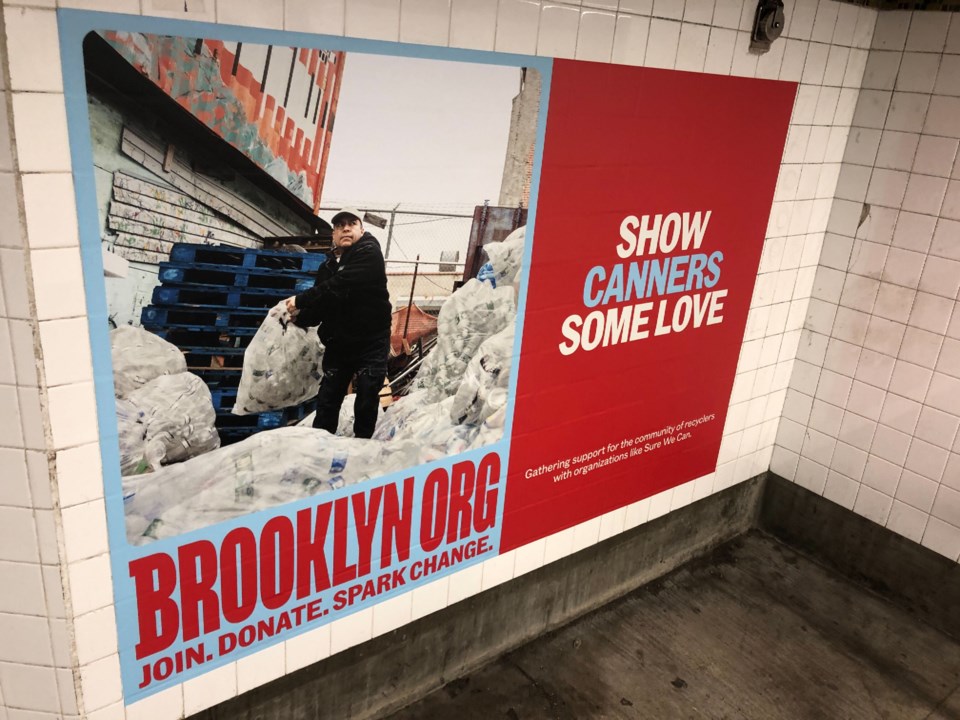Tucked into a quiet block of Bushwick, the recycling facility nonprofit Sure We Can provides canners—people who redeem cans and bottles as a means of self-employment—a space to store their goods, sort their cans and bottles, and collect their deposits.
“The systems that allow canning to exist are impressive,” said Ryan Castalia, the executive director of Sure We Can. “They create a mechanism for people who experience intense barriers to traditional employment to still be able to offer their labor power to communities and earn value from it.”
As trash continues to grow around the five boroughs, the work of canners becomes necessary in waste management. Through their collecting and sorting, canners divert material away from landfills and into recycling centers. In 2023 alone, canners redeemed over 12 million containers just at Sure We Can’s facility.
“They are essentially green workers, essential workers, who are performing incredible service for the community in terms of litter reduction,” said Ryan Castalia, the executive director of Sure We Can. “It just doesn't get the recognition it deserves.”
The law which enables this recycling, called the Returnable Container Law, originally passed in 1982 in New York State. The bill gives people a five-cent incentive to return their used bottles and cans. Just as the city's waste management system relies on this law to alleviate, canners rely on this law as a means for self-employment.

Despite rising costs of living, that five-cent deposit hasn’t changed since the law’s inception. Now, activists are fighting to increase it to ten cents. Sure We Can also advocates for the addition of more containers into the law, which currently only covers beer, carbonated beverages, water, and wine containers.
“The bottle bill allows [canners] to not only clean up those communities that are oversaturated with litter and pollution, but also to direct economic activity into them through their earnings,” Castalia said. “In that way, the bottle bill actually is a really elegant mechanism for people to access work, for people to improve their communities.”
This article was made possible through the generous support of Brooklyn Org, allowing us to bring you in-depth coverage of local non-profits working to empower Brooklyn communities. This non-profit organization and others will be featured in Brooklyn Org’s Show Brooklyn Some Love PSA campaign throughout June at sites across Brooklyn.


.png;w=120;h=80;mode=crop)
